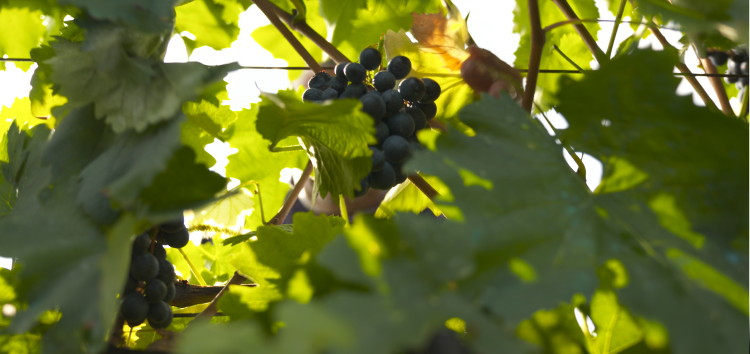
Autumn is the busiest season of the year in Kakheti, the main wine-making region of Georgia. Early in the morning farmers and their families rush to the vineyards to pluck ripe grapes from the vine, while trucks deliver the fruit to processing factories.
The harvest is a time for both hard work and celebration for everyone in rural areas, including Valerian Feikrishvili.
“I have been working in the vineyard for 18 years already,”he said. “I know how to look after grapes; I’ve got used to and fallen in love with it.
“We make good wine here and I want it to be more and more popular around the world.”
Newly released statistics reveal that Mr Feikrishvili’s wish might be coming true. In 2018 alone, according to Georgia’s National Wine Agency, over 86 million bottles were exported to 53 countries, an increase of 13 per cent when compared to 2017.
New opportunities in-house and abroad
Roughly 3,000 kilometres from Kakheti, Kristina Sheli takes pride in the fact that her restaurant in Berlin offers a wide variety of Georgian wine to European and global customers.
“We opened Salhino two years ago,”she said. “We’re attracting many guests now. They aren’t only interested in our wine, but also our culture. They’re deeply interlinked.”
Wine-making is an integral part of ancient and modern Georgia. Recent archaeological discoveries prove that the winemaking tradition here can be traced back 8,000 years. For modern Georgia, wine is among the country’s top exports.
Kakhetian Traditional Wine-making (KTW) is one of its biggest wine exporters. Established in 2001, the company gradually built ultra-modern factories and wine processing facilities across Georgia and is now exporting to more than 20 countries.
But apart from satisfying consumer demand abroad, KTW has decided to welcome an increasing number of guests to the country too by developing and investing in wine tourism at home. The EBRD and European Union under the EU4Business initiative have been reliable partners throughout this journey.
Supporting SMEs in Georgia, Moldova and Ukraine
KTW is one of a dozen Georgian wine-making companies supported by the EBRD’s and EU’s joint programme. It offers small and medium-sized enterprises (SMEs) financing through partner banks, which is blended with grants provided by the EU.
“Stimulating economic development and job creation is a key priority of the EU in Georgia, and supporting SMEs is one of the best ways to achieve this,” said Carl Hartzell, Ambassador of the European Union to Georgia.
“Through programmes like this one, we hope to see more Georgian products developing locally but also accessing and benefitting from the EU’s single market.”
The EU4Business-EBRD credit line supports local companies in their ambition to trade with their European counterparts with confidence by investing in better equipment, standards and processes.
The companies are assisted in their efforts to improve their environmental footprint, the working conditions for their employees and to offer their local customers services and products of better quality.
Moreover, the programme reinforces hope in a better tomorrow for farmers such as Mr Feikrishvili.
“Our works pays off when the harvest is good,” he said. “This year we had a good harvest, next year will be better.”
Beyond Georgia, the programme runs in Moldova and has just been launched in Ukraine. All three countries are signatories of free trade agreements with the EU, the world's largest trading block.
